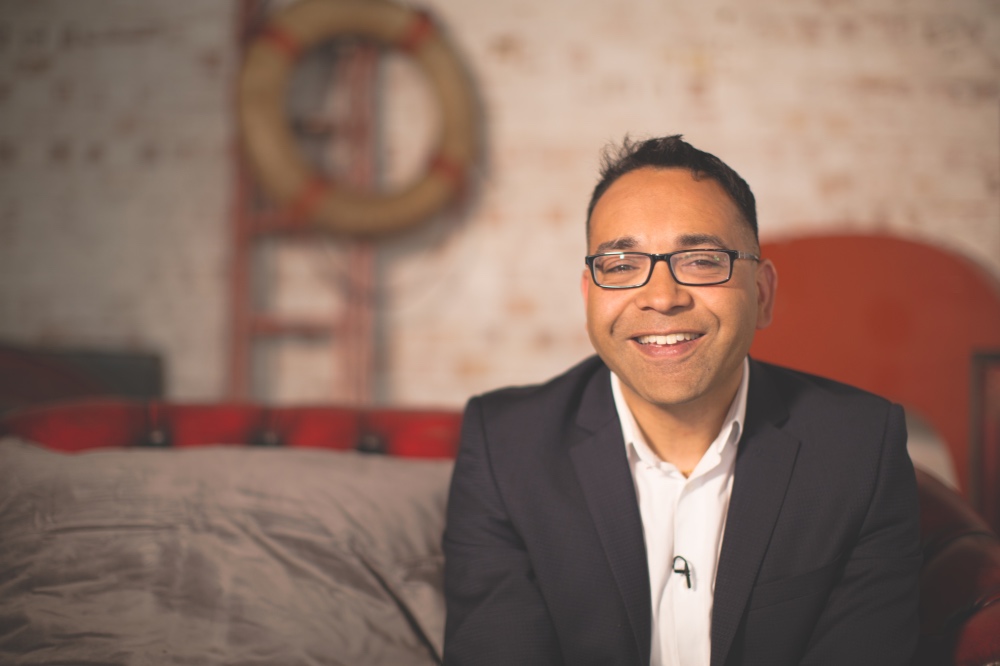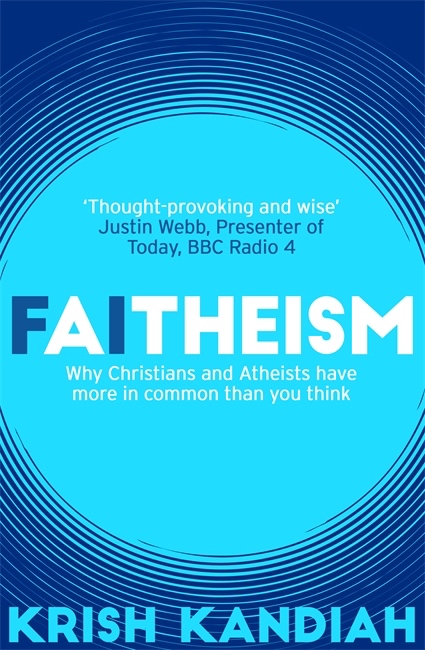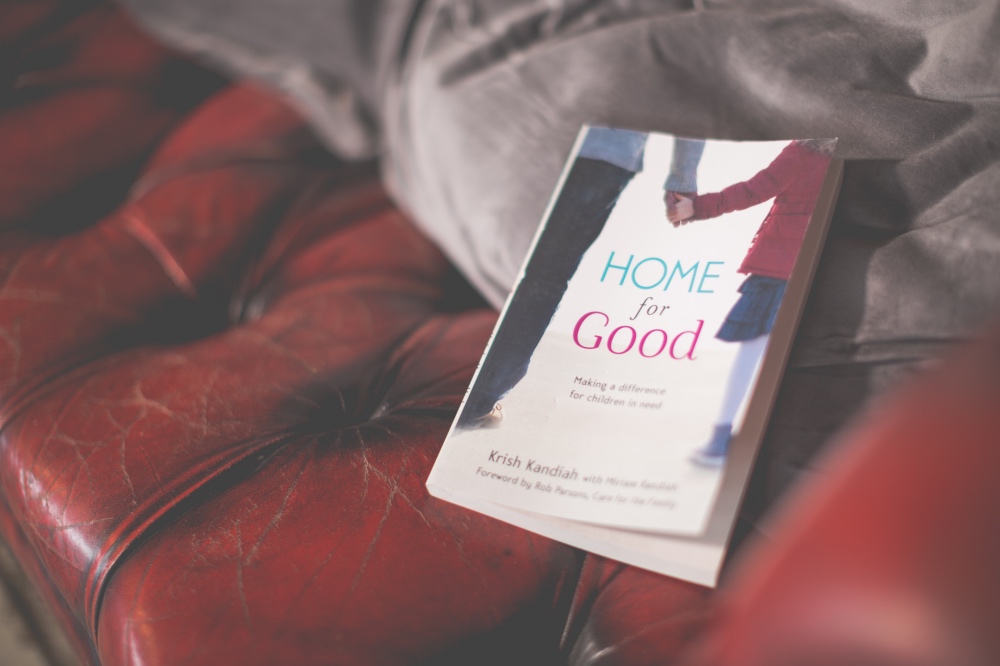
In an interview which took place on the sidelines of the recent Justice Conference in Melbourne, DAVID ADAMS speaks with Krish Kandiah, founder of UK charity Home for Good, about his passion for bringing together Christians and children in need…
A leading UK advocate for children in need has called for Australian Christians to answer the Biblical call to care for vulnerable children by adopting a “families for life” approach to those in foster care.
Dr Krish Kandiah, founder of UK Christian charity Home for Good – which facilitates connections between local government authorities responsible for children in care and churches in a bid to encourage more Christians to become foster carers or to adopt children, believes there is a crisis in Australia’s foster care system.
Citing Australian data from June, 2017 showing there were almost 50,000 children in out-of-home care in Australia, that more than 40 per cent of them had been in the system for more than five years and that more than 32 per cent of them had experienced more than 11 placements, Kandiah said it seemed to him that such statistics showed the foster care system was not working.
“[W]e want to call Christians, with their eyes wide open, knowing the system is broken, to step up and be the carers that these children need and,…when needed, to commit to being the ‘forever families’ for these children – even if you don’t have a piece of paper that says these children are adopted, your commitment, our commitment to them, should exceed that bit of paper,” says the 46-year-old.
“I think if we do that, the outcomes for children will be different – I’m not promising you it’s going to be happily ever after like on Despicable Me or Anne of Green Gables – this is tough work and we don’t want to romanticise it – but they [the outcomes] will be different.”

Dr Krish Kandiah, founder of Home for Good. PICTURE: Supplied.
Kandiah believes that such an approach would also change the churches that get involved.
“[I]ts worship will be different because we’re offering God the kind of worship that He asks for anyway,” he says, referencing James 1:27 which states: “Religion that God our Father accepts as pure and faultless is this: to look after orphans and widows in their distress and to keep oneself from being polluted by the world” (NIV).
“[S]imilarly what the nation thinks about the church will change because this is a lived parable of the grace of God. Jesus said ‘Let your light shine before men, that they may see your good deeds and praise your Father in Heaven’. I don’t know of a more powerful demonstration of the grace of God than welcoming someone else’s child into your family and loving them for better or for worse for life.”
“I don’t know of a more powerful demonstration of the grace of God than welcoming someone else’s child into your family and loving them for better or for worse for life.”
– Krish Kandiah.
Kandiah’s own experience with fostering had a somewhat rocky start. Speaking to Sight at a café while in Melbourne for the Australian arm of The Justice Conference last month where he was delivering a couple of presentations including a keynote speech on the call of the church to help children in need, the theologian, speaker and author told of how when his wife Miriam first started a conversation about fostering children, he thought it was a “really bad idea”.
“My wife and I had three children in three years and I thought that was my contribution to population growth…” says Kandiah, who was brought up by his Indian-born mother and Malaysian-born father in the UK seaside resort of Brighton but who these days lives with his family near Oxford. “[But] my wife thought we still had capacity to care for kids so asked us to consider fostering.”
Despite his initial negative reaction – and Kandiah says it took him a year to come around to the idea – a couple of things happened which challenged him. The first was when friends, aged in their 60s, became foster carers for teenagers.
“That really challenged me – if they were willing to do that at that stage in their life, I should be willing to do that in my 30s,” he says. “And then – it’s an occupational hazard for Christians – God spoke to me through the Bible.”
“Everytime I was opening Scripture, I was reading about God’s concern for the orphan or the widow or the stranger and just over and over and over I just saw – and I don’t know how I missed it, you know, I was teaching in a seminary and I still hadn’t seen it – that hospitality is such a key element in what it means to be a disciple and God’s particular interest in the most vulnerable and vulnerable children being one of the essential three groups of people that God seems to show particular attention to.”
After a couple of initial knockbacks, about seven years ago Kandiah and Miriam became foster carers and their seven children now include both adopted children and children in foster care as well as their birth children.

FINDING COMMON GROUND
Released this year, Krish Kandiah’s book Faitheism: Why Christians and Atheists have more in common than you think arose out of the observations he made when sending Christians into the assessment process for foster care – what he describes as “one of the most invasive assessment processes you can go through” – and finding a disconnect between them, and the social workers they were encountering.
“Sadly a lot of the assessing social workers are ignorant or hostile about faith and Christians tend as a result to get defensive or very ‘bolshy’,” says Kandiah. “So this is a book trying to equip Christians to have a better conversation in language or modes of thought that people that don’t share our faith will understand.”
It was as he started writing it, that Kandiah says he realized that there was a bigger need for such a book.
“When you read most Christian books about atheism, I don’t recognise the atheists [they portray] because most atheists are not Richard Dawkins trying to destroy your faith,” he says. “They’re reasonable people, they’re your colleagues, they’re on the PTA helping out at school…”
Similarly he adds that in “a lot of atheist books I read about Christians, I don’t recognise the Christians – we’re always trying to blow up abortion clinics or we’re pro gun rights and that doesn’t fit for most Christians”.
Faitheism, says Kandiah, is about “trying to take some of the prejudice out of the conversation”.
“What I’ve realised is that there is a lot of common ground because of our shared history and a lot of the things that we really value in our culture…have a Christian origin story. So…I build on that kind of intellectual common ground and figure a way to have a better conversation and to do that in a way that models grace and truth…[I]t’s really trying to reframe the conversation.”
– DAVID ADAMS
But the couple didn’t stop there. Thanks to their exposure to the inner workings of the foster care system in the UK, Kandiah says they found out there were around 5,000 children waiting to be adopted in the UK despite the fact there were lots of people who wanted to adopt.
“The problem was the kids that were available to be adopted were not the kind of kids that most adopters wanted. So they weren’t babies, they were older children, in sibling groups, often with additional needs, often from black or minority ethnic backgrounds and that wasn’t what the average adopter wanted. The average adopter was coming forward because of infertility and when that’s your driver, often you really want a baby. And so there was this mismatch between, to put it crudely, supply and demand. And on top of that, there was this shortage of around 9,000 foster families across the UK.”
Kandiah was working with the Evangelical Alliance UK at the time and soon realised that by combining the alliance’s database with that of another Christian charity working to support families, they had about 15,000 churches on their list.
“Suddenly the maths worked – we didn’t need every Christian to adopt 10 children, we just needed one new family to foster or adopt per church and the rest of the church to offer support by wrapping around that family and we could meet the entire need. And that was the kind of ‘Aha’ moment, that when you combine the Scriptural imperative and the current need and the scale of the church, we thought we had something that we could do.”
That something was the establishment several years ago of Home for Good, the story of which is told in Kandiah’s book of the same name (it’s one of 13 books he’s written, the latest being Faitheism which explores the common ground shared by Christians and atheists – see breakout).
While things started slowly, in 2015, the work of the charity accelerated dramatically when the plight of children in the European refugee crisis hit the headlines after pictures of the body of three-year-old Syrian boy Alan Kurdi lying on a Turkish beach were published around the world. The British Government subsequently announced it would take in up to 20,000 Syrian refugees in the next five years, later expanding it to include 3,000 unaccompanied child refugees.
Aware that there was already a shortage of carers for children in the system, Kandiah says they decided to scale up the response in preparation and put out a call for people to volunteer to start training to become foster carers with the hope that they could perhaps attract 100 new people. That proved a dramatic under-estimate.
“We had 100 people in an hour,” he says. “By Saturday morning it was 1,500, by Sunday morning it was 3,000, by Monday it was 8,000 people who had told us they wanted to start the process to foster…”
While in the end not all were needed to help the refugee arrivals, Kandiah says that period was nonetheless a “game-changer” for Home for Good.
“[W]e realised we had a political voice as well to speak up on behalf of vulnerable children and that there was a wider remit of care that was needed,” he says – something that has since seen the organisation become an advocate for the children in care both in the UK and elsewhere around the world.
Returning to the Australian situation, Kandiah says that while he understands, given Australia’s history with Indigenous children, adoption has become “all but impossible” in the country, rethinking the approach to the concept could change that.
“[A] lot of the drivers for adoption have been finding children for families that want children,” he says. “Our whole approach is the opposite way around – we’re trying to find families for children. So that means this isn’t primarily driven by the needs of the couple or the single person, it’s about the needs of the child and the rest of us then step up and become what that child needs.
“So that’s the motivation, that’s the driver and, to be honest, that is modeled out of our theology…If you think about it, adoption is a really powerful theme in the Bible [in describing] God’s relationship with us. And when God adopted us, it wasn’t because of a need in Him. So God wasn’t lonely or bored…God didn’t adopt us because He needed it; God adopted us because we needed it. And it’s that mindset we’re trying to bring into the space of fostering and adoption.”

Krish Kandiah’s book, Home for Good: Making a Difference for Vulnerable Children
Foster care, he says, is not designed to be permanent. When young adults, who have suffered “the most traumatic start in life” – and UK stats show 70 per cent of kids in the care system have suffered sexual abuse, physical violence or severe neglect – leave their foster families, usually around the age of 18, they “basically have to fend for themselves”.
“And the stats are pretty terrible. Of our male prison population that’s under 25, over 50 per cent have care experience or are care leavers. Care leavers make up one per cent of the UK population but they are 25 per cent of the homeless population. And in some areas it’s 30 per cent, in other areas it’s 70 per cent, of sex workers who are young women that have aged out of care. So it’s like falling off a social cliff, isn’t it? It’s not working because we need families for life.”
That’s where the “families for life” approach comes in.
“[W]e need to recognise that foster care is not the permanency solution that it ought to be,” he says, adding that adoption also needs to be an option.
“I would say there comes a time where you give every help you can to that family and still things aren’t going to improve and therefore it’s in the child’s best interest to be free and made available for adoption. That’s my take on it.”





